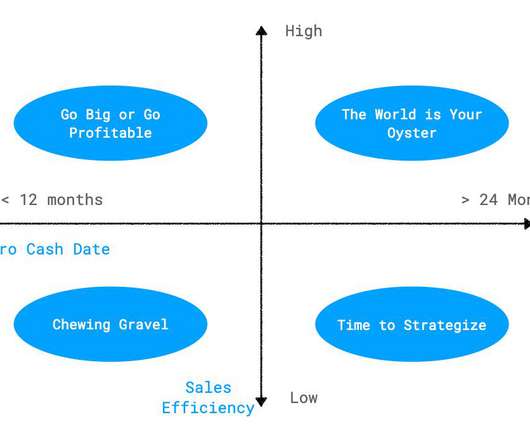Why Startups Should Raise Money at the Top End of Normal
Both Sides of the Table
JUNE 5, 2011
2: As expected at least one person accused me of writing this post because I want to see lower valuations. As the risks below get eliminated the higher the valuation investors are prepared to pay. So rounds tend to be “range bound&# where the top end of the valuation spectrum often being done in boom markets (i.e.


















Let's personalize your content